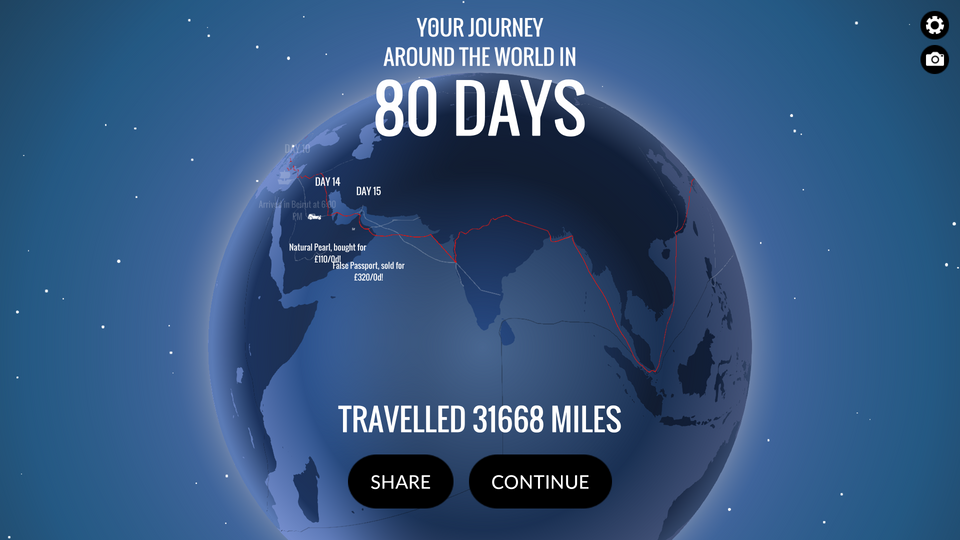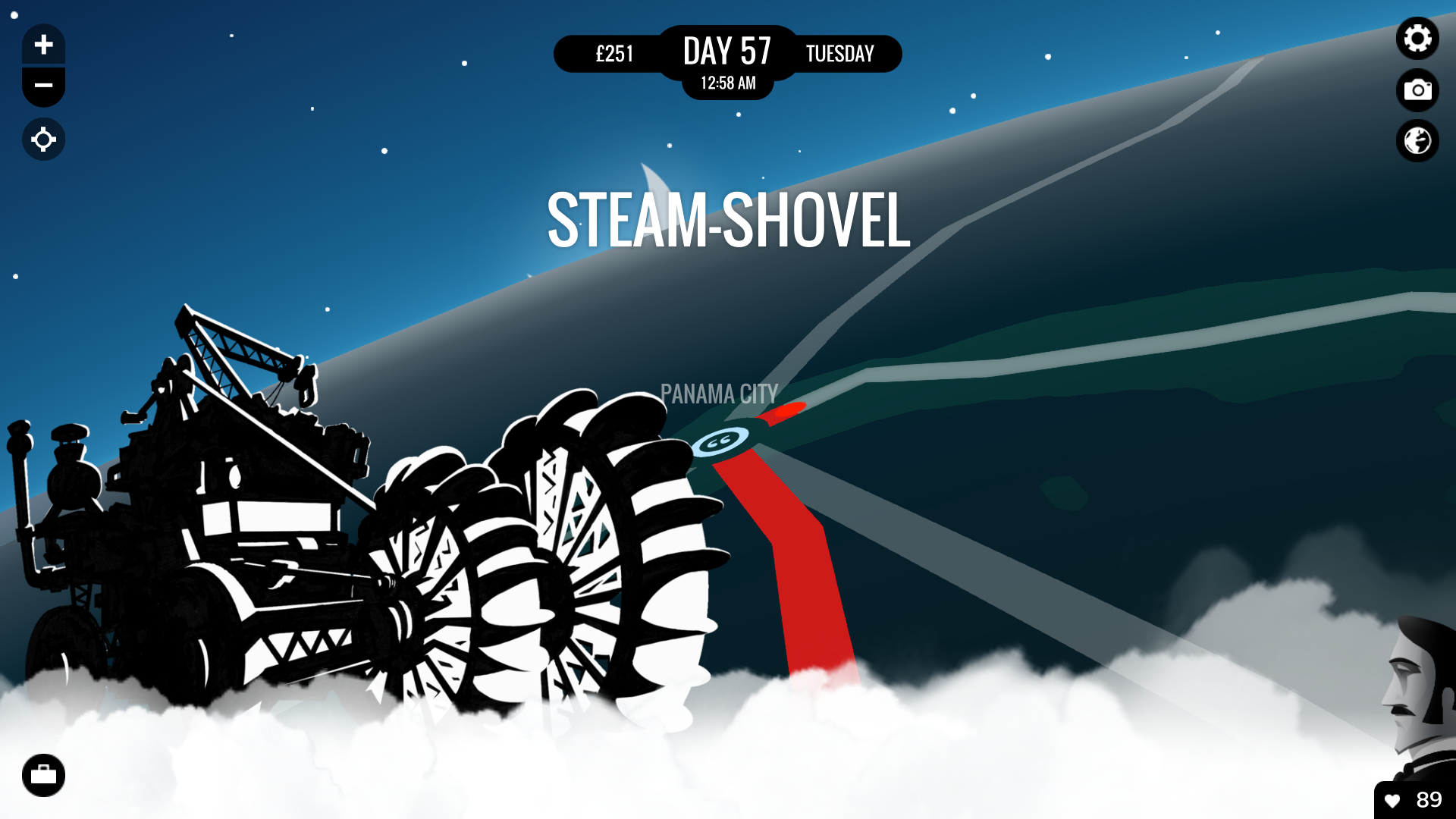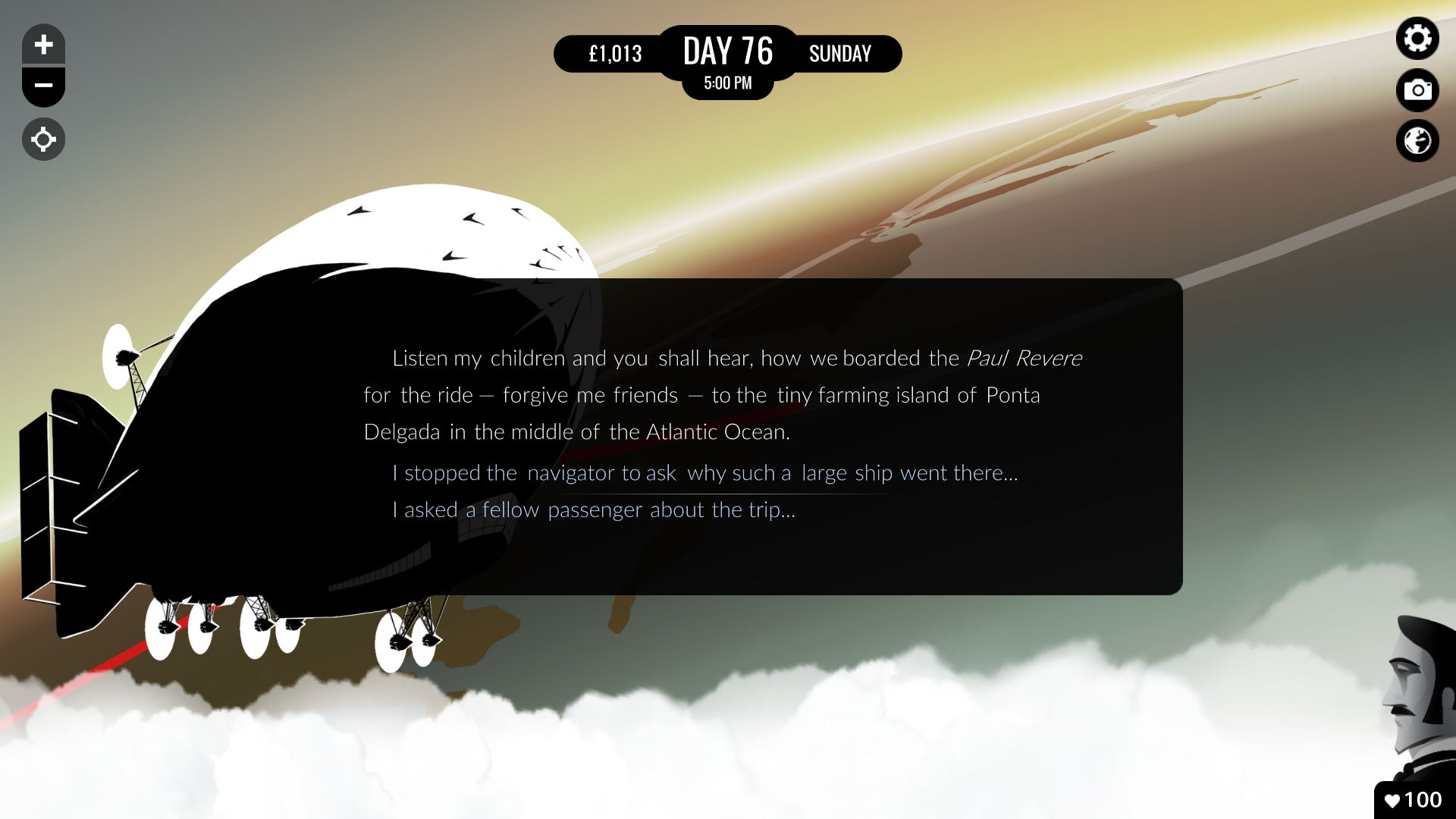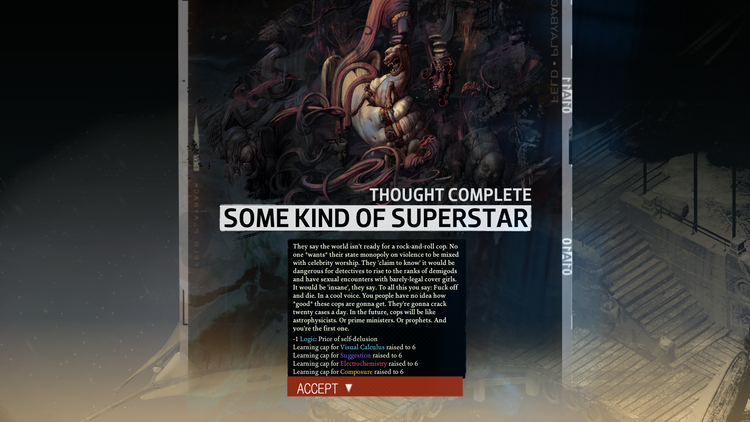80 Days

It's been well past 80 days since I let this blog lapse, I know. Mr. Fogg and Passepartout would be so disappointed if I let silly nonsense like "major life events" keep me from talking about games. I am suitably shamed by a near-silent tut.
Forgive my upcoming vagueness about the dialogue in this game – IMO, it's best experienced with as little knowledge of the text as possible going in.
80 Days is an interactive fiction game based loosely on Around the World in Eighty Days, the 1872 novel by Jules Verne. The choices you make define the narrative, and there are plenty of them: 80 Days has one of the largest gamebooks ever written, clocking in at about 750,000 words.
You are Jean Passepartout, valet (read: servant) to one Mr. Phileas Fogg. Mr. Fogg has made some absurd bet with his buddies at the Reform Club for £20,000, proposing that he can make it around the world in 80 days. Given the time period and limitations on travel, that's an unholy difficult prospect even in a fantasy steampunk universe. And hell, £20,000 is a hefty sum even now; in modern dollars that's a hair over $500,000. Rich people, man. I don't know.

At any rate, you pack up your bags, which contain slightly different items in each play-through. During your first, though, you can only go to Paris on a train that turns out to also be a submarine. From there, you have an abundance of options, more of which are unlocked in each subsequent run. The bulk of the gameplay is travel between cities and accomplishing some goal in each, whether that's finding a way forward, interacting with people, figuring out creative ways to get more money to fund your trip, or some combination thereof. Making it around the world in 80 days is a tad tricky and requires some planning, but it's not impossible by any means.
80 Days is thoughtful about several dicey issues, which I always appreciate. There are allusions to sexuality that you can choose to pursue or not, which I appreciate as someone who enjoys optional romance (thanks again, Mass Effect). When they do come up, they're very tame and a plot point rather than a storyline, and certainly never done to shock. There are also some lefty undertones; not many games will give you a narrative path that involves fomenting revolution against an oppressive state and then making you choose whether to leave the revolutionaries out to dry. There are more than a few sly comments on imperialism, religion, capitalism, and how political power is built.

All that said, the game carefully avoids railroading the player through those choices: in every serious dilemma, there's nearly always a valid reason for every decision. That's laudable, given how many of the moral and ethical decisions 80 Days presents you with are either ethically grey or incredibly risky. You are, however, always left to contend with the consequences of your decisions. On several occasions, the lesson is that there are no good options – only bad and worse. On some others, you've gotten unthinkably lucky. This said, things do even out. 80 Days doesn't pull its punches¹, but it treats the player fairly and as a partner in storytelling.
I loved 80 Days. I've played it easily 30 times, and I'm still finding tons of new storylines. It's hard to write something and refuse to give much in the way of specifics, especially about a game I adore as much as I do, but I truly want you to discover all of the game's cleverness and quirks yourself.
If nothing else, you'll learn a whole lot about how to pack a suitcase.
Game: 80 Days // Recommend: Yes // Potato Rating: 2/5 potatoes – needs basic graphics capability but otherwise not resource intensive // Developer: inkle
¹ spot the case where it actually doesn't



